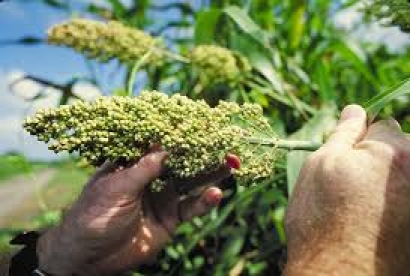
Sorghum is a member of the grass family grown worldwide. It is among the most efficient crops in conversion of solar energy and use of water, making it an ideal crop to target for improvement.
Building on earlier research using the model grass, green foxtail (Setaria viridis), this project will identify new genes and pathways that contribute to photosynthesis and enhanced water use efficiency. The team will then deploy these genes using tools of the emerging field of synthetic biology to accelerate development of elite energy sorghum varieties for production under marginal environments.
"Understanding the network of genes involved in photosynthesis and drought tolerance will provide targets for plant breeders and genetic engineers to re-design sorghum specifically as a high value bioenergy feedstock to be grown on marginal soils and thus not compete with food crops," said lead principal investigator, Thomas Brutnell, Ph.D., director of the Enterprise Rent-A-Car Institute for Renewable Fuels at the Danforth Center.
The team's expertise ranges from plant physiology, genetics, molecular biology, and informatics to computational biology and genetic engineering. Its members include scientists at Washington State University, Carnegie Institution for Science, University of Rhode Island, University of Illinois, University of Minnesota and the United States Department of Agriculture.
"Sorghum is an attractive bioenergy feedstock supported by well-developed breeding and seed industry," said co-principal investigator on the grant, Todd Mockler, Ph.D., Geraldine and Robert Virgil Distinguished Investigator at the Danforth Center. "This project will leverage recent investments by DOE to further accelerate sorghum feedstock enhancements, develop new gene editing and transformation technologies and conduct a whole genome association study to identify genes to improve sorghum productivity."

